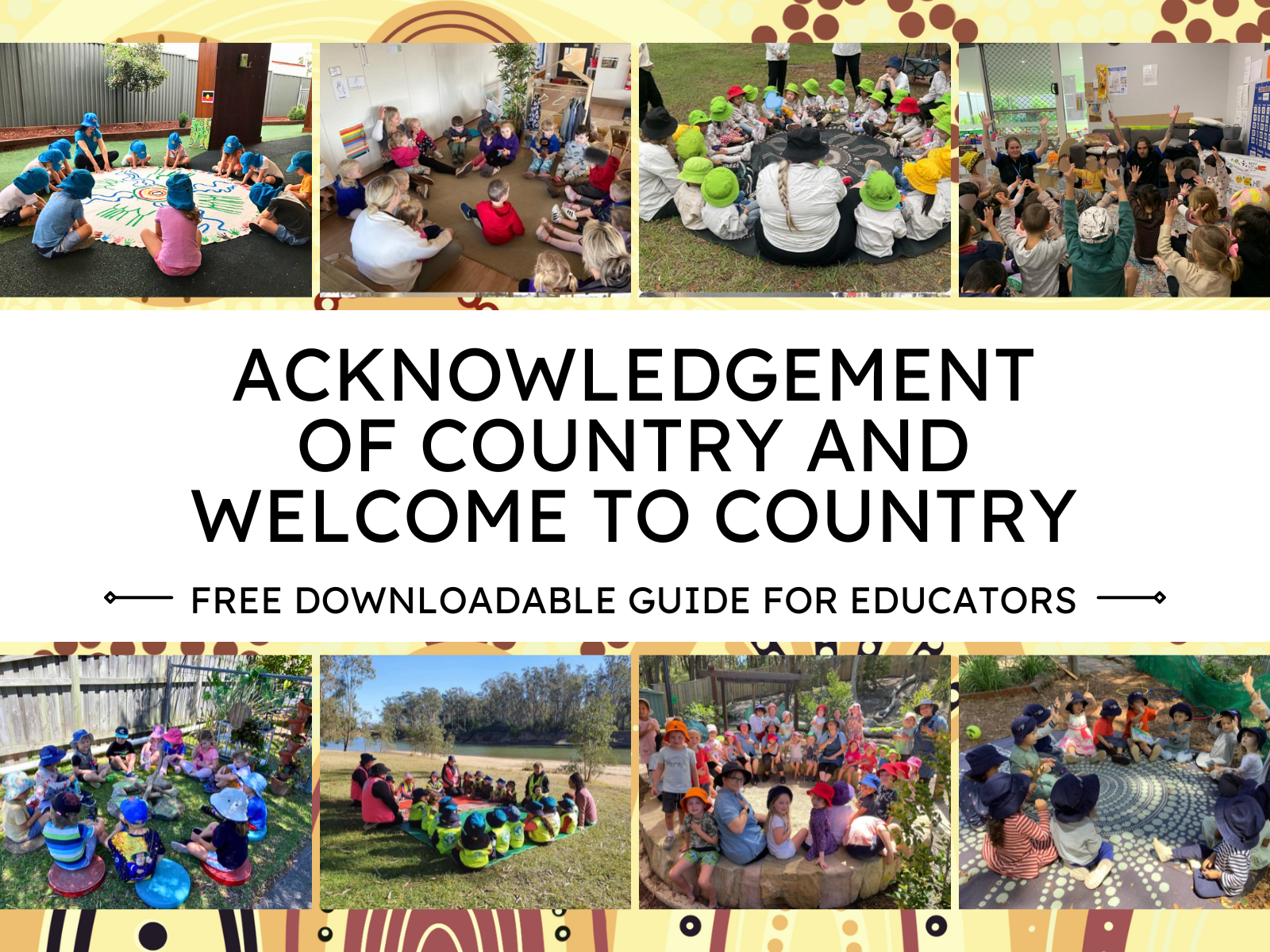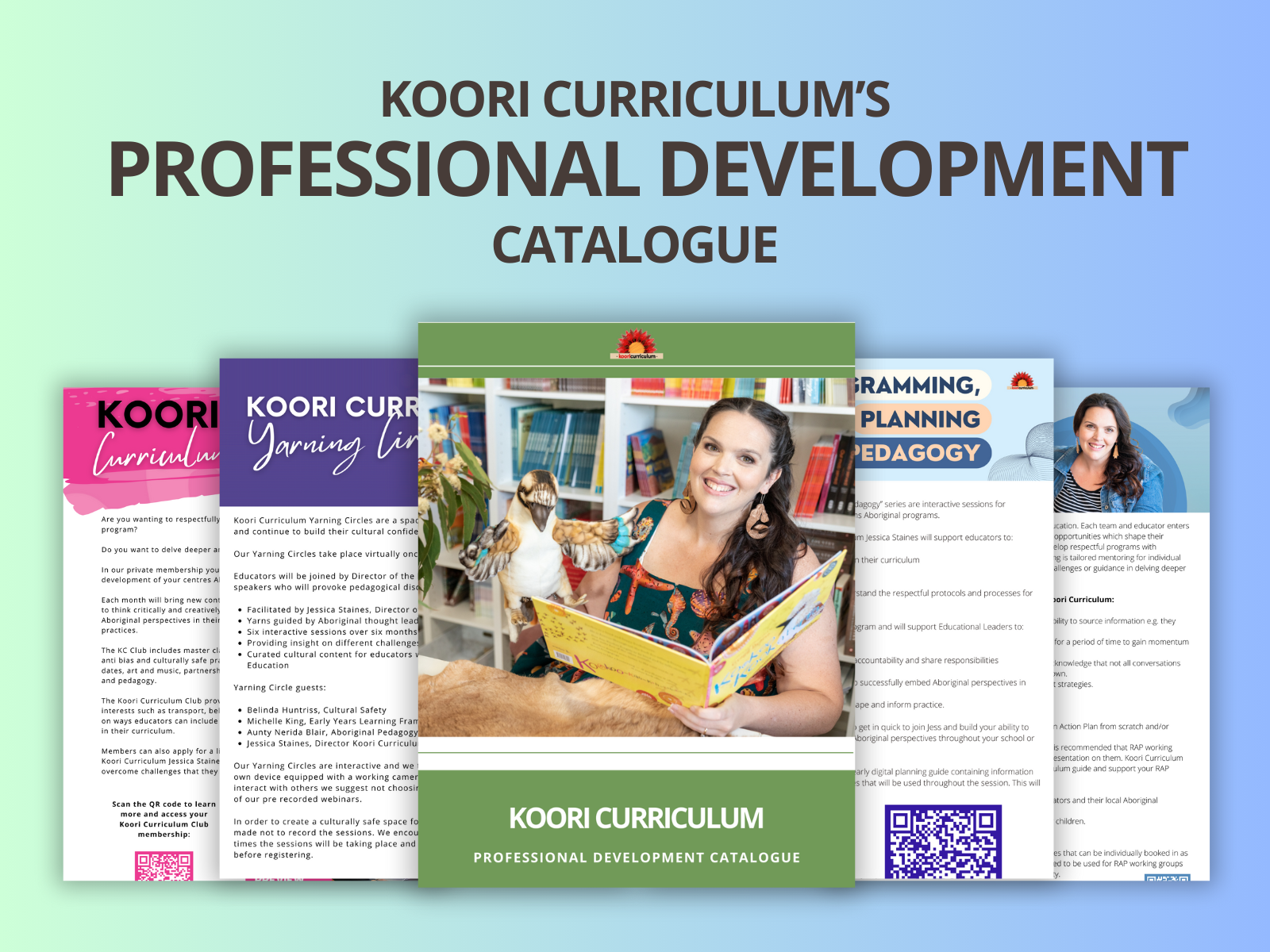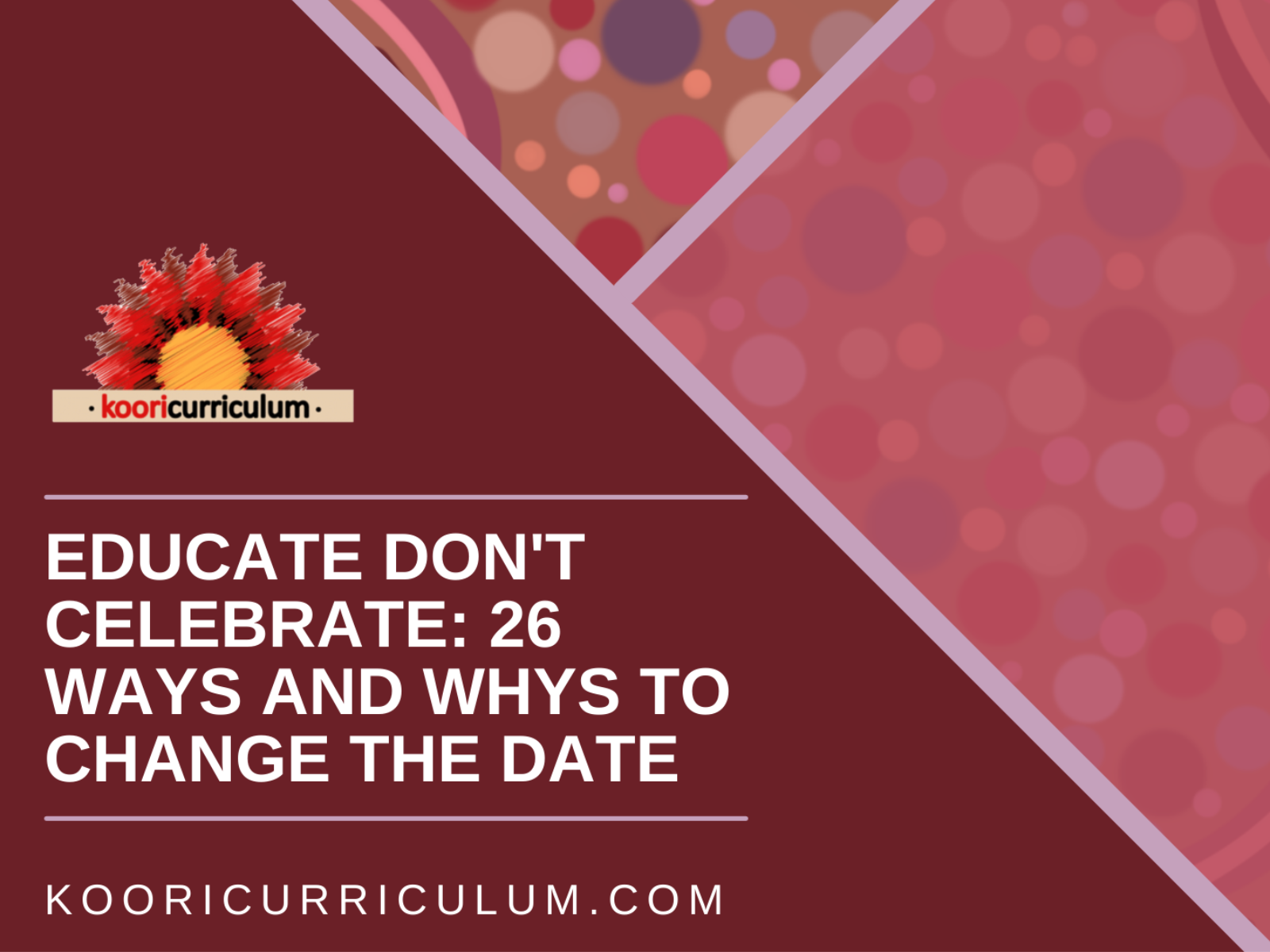
Connecting with Community by Kathryn Albany
Deborah Little is a lovely early learning centre on Gadigal Land in Sydney’s Inner West. Our values include embedding anti-bias curriculum as well as supporting our families’ inclusion. Of course, this is nothing new for those working in the early childhood profession, however we like to think that these values guide us individually as well as drive our team’s overall actions and pedagogy.
Making approaches to community
Educators are often told to make connections with the local community; however, this is not always as easy as it might sound at first. When educators approach these connections from a Western perspective, we may expect that simply making a call and booking a time would be the end of our commitment.
However, the reality is that this approach is unlikely to be successful as it ignores the connections that are crucial to building relationships with Aboriginal and Torres Strait Islands communities.
How to build reciprocal relationships
There is no ‘one size fits all’ answer to creating strong connections with community. However, we have found that being open and flexible go a long way towards building strong relationships. We approach relationships by asking ‘how can we help you?’ rather than ‘what can you do for us?’.
From Christmas toy drives to meaningful connection
Last year, we collected donations of Christmas presents from educators and families to support Gunawirra, a local early intervention service. When the floods ravaged Northern NSW, we again rallied to provide much needed supplies such as small appliances, bedding, and household goods.
Making this donation in person led to building a relationship with Uncle Graham, a local elder who runs a range of cultural programs. We continue to look at ways to further support Gunawirra and their mission, by using our place in the community and connections.
Walking on Country, walking together
Attending local events where elders are already gathered is another wonderful way to forge relationships. We regularly attend events in our own time. This is an important commitment to make when seeking something so valuable as time from elders. We have to remember that they have many demands on their time from people wanting to use their knowledge and position alongside their own busy lives as well as cultural commitments they may have to honour.
We have been lucky to have Uncle Jimmy attending our service this year to take children on excursions and share cultural knowledge with the preschoolers. The amount educators, families and children have learned through this is immeasurable.
Weaving together
Another connection that we value in our service is our connection with Aunty Jo, who has taught several of the educators how to make string and weave baskets. This is a truly meditative experience, as Aunty weaves her knowledge and yarns through conversations as deftly as she manoeuvres the threads.
Following local community facebook pages has been an important way to find out about events we could attend. In person approaches are usually preferable to email or telephone.
Sometimes it doesn’t work out
With all your planning and best intentions, sometimes it does not work out. We think it is good to cast a wide net, go in wondering how you can support them and remember that any knockbacks are simply learning experiences.
Try not to take it personally, remembering that we are asking for significant emotional labour in asking for engagement.
Funding
We have found that grants are a wonderful way to pay for the talent and knowledge of our elders. Find out what is available to you and take full advantage of this, as it is not cheap to engage the services of highly trained professionals. We know you will find it is worth every cent.
Hopefully, you have found some useful tips by following our journey. We are learning and always strive to do better and work out how we can support Aboriginal and Torres Strait Island people rather than how they can support us.



